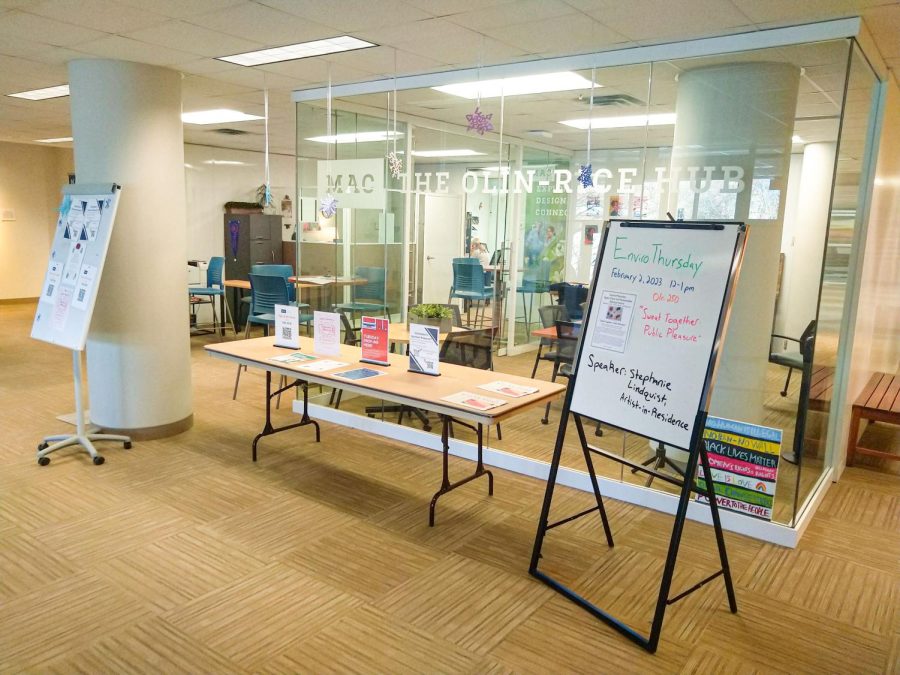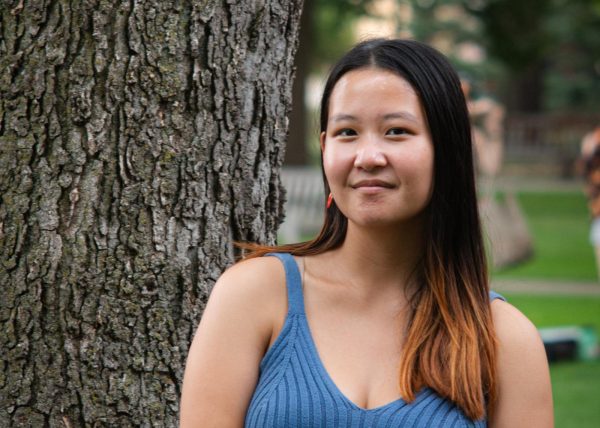An imbalance in opportunities: STEM summer research access
February 9, 2023
There are many benefits to going to a small liberal arts college. Reasons that I am sure most if not all Macalester students considered before applying to and accepting their offer to attend this school. These include the small class size, connection with professors, and the convenience of getting to know your classmates and having a tight-knit community.
In the first-year orientation process, new students are warned against getting “lost in the Macalester bubble.” This essentially means that Macalester is such a close, welcoming and well-structured community that it is easy to forget to explore and take advantage of all the resources available in the Twin Cities. As the Macalester website points out, there are opportunities around us, such as a variety of museums and 200+ internships within eight miles of campus.
In my college application process, Macalester’s supplement asked about the influence that Macalester’s location might have on applying students’ willingness to attend.
“Students benefit from the strong sense of community on campus and opportunities to engage in academic, social and civic engagement options in the Twin Cities,” the supplemental question reads. “Have you thought about how Macalester’s location might impact your experience? If so, in what ways?”
Despite the fact that Macalester makes the college’s location a key attraction for potential students, the school provides few resources for how to circumvent the issues that come with attending a liberal arts college. Summer experiences that come with Macalester’s location are not guaranteed, and those seeking laboratory research face many more issues obtaining these opportunities than their humanities counterparts.
There are certainly some aspects of the liberal arts experience that augment students’ chances and strengthen their applications, such as better letters of recommendation from professors. However, I believe that the detriments far outweigh the benefits that STEM students see.
With such a limited number of professors teaching in each department; students are lucky if there is even one professor who does or has done research in a field related to their career of interest. If you are able to find one and they are accepting students in their lab at all, you undergo the hard-pressing process of securing a position in their lab for the summer or for the academic year.
Though Macalester makes a big deal out of departmental intersectionality, the importance of gen eds and “the liberal arts experience,” that does not mean that the school should be able to neglect the hard sciences by using the importance of experiencing education in multiple areas as an excuse.
However, that is not to say that the resources that the school does provide are not useful. The Olin-Rice Hub and its counselors are available for a variety of services, such as resume review, interview prep and assistance with writing cover letters. This is not enough.
Research opportunities at the University of Minnesota and surrounding schools are largely only available to students at those schools, and those that are available often have numerous requirements, such as certain coursework that Macalester does not offer due to its size.
Many research for undergraduates (REU) programs prioritize rising juniors and seniors, as it is presumed that a certain level of lab work has been completed by the time of application. However, these programs are scattered around the country, and housing, food and support for transportation are often not included in your offer of acceptance. These programs are far more competitive and much more readily available at larger universities, than those where only students from your own institution can apply.
With Macalester’s rising number of STEM majors, the competition within the school is just as intensive. Around 25-33% of students who apply for summer research opportunities with professors at the school or Macalester related opportunities receive an offer. When graduate and medical schools expect at minimum two to three summers of research experience under your belt when you apply, not everyone has the ability to take a year or two off after graduation to gain this experience.
Even if you can get a position with one of Macalester’s professors, your problems do not end there. Last summer, during the interim period between the end of classes and the start of Macalester’s summer meal plan, students were left scrambling to figure out how they were going to eat. The issue persisted into the first two weeks of their internships, affecting the professors they were working with as well.
Despite the fact that Macalester offers summer housing to students engaged in Macalester-related internships over the summer at no cost, it comes with the caveat that you must purchase the school’s pricy summer meal plan. For many whose identities are used as statistics to promote the school’s image, like international and low-income students, this is not an accessible option.
If your plan is the only other alternative, which is to find cheaper housing off campus, the school might throw a wrench in that as well. Since the first payment for your summer internship from the school will not hit your bank account until June, almost a full month after your internship starts, and the school will kick you out after the end of classes.
Even when you decide to pursue opportunities that are not Macalester sponsored, you are left lacking in resources to do so. The process gets trickier as many of the links provided in the Olin-Rice Hub and department websites are often outdated or unavailable. This leaves you to google keywords, search relevant terms and scan the thousands of options on Handshake, in addition to your already rigorous coursework, work study and any extracurriculars you may be engaged in.
Professors and department coordinators are left to compensate for the potential lack of summer research experiences. Professors, by implementing skill development aspects in classes such as experimental design and grant proposals, and coordinators by emailing out potential opportunities for students to apply to and independently seek out.
Although this patchwork amalgamation of different sources of information and support may be well- intentioned and helpful, the work then falls to the student, to put their time and effort into compiling these resources into something tangible. With so many other responsibilities taking up their time, the additional mental burden of seeking out an intangible position that could very well be a strong determinant of career success, is something that requires more support than Macalester currently supplies.














